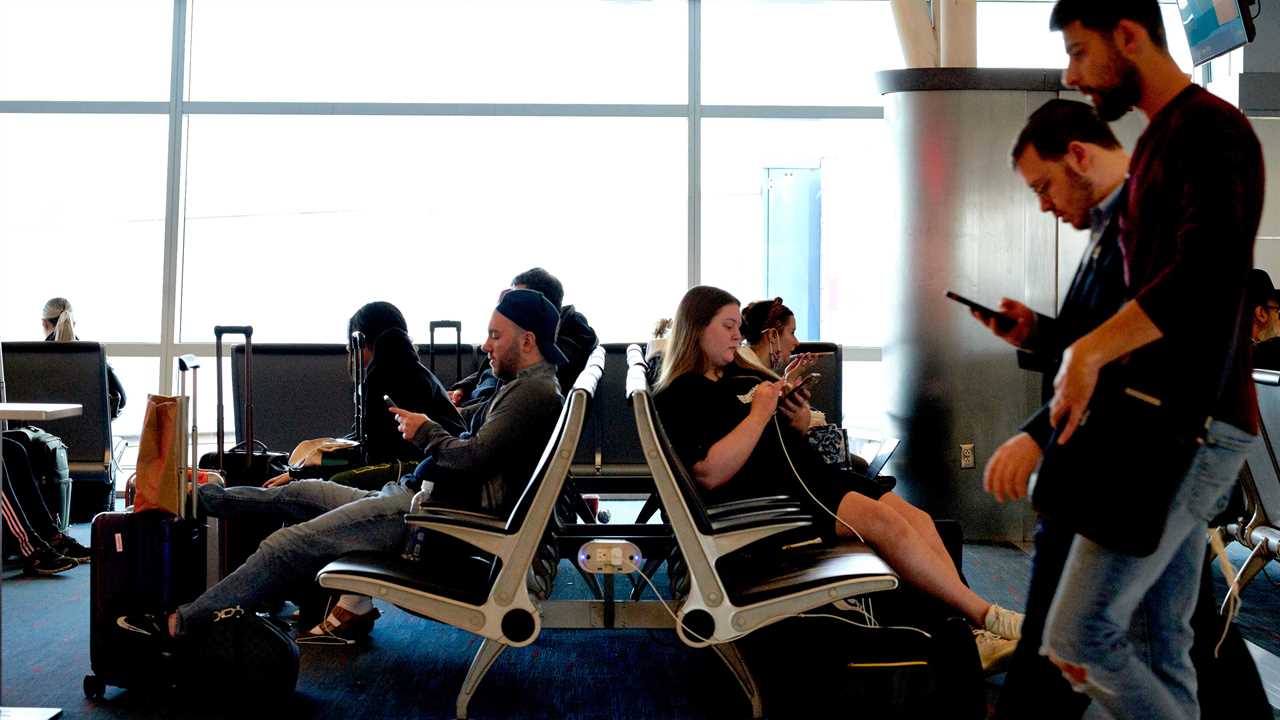
Americans greeted the lifting of mask mandates on planes, trains, buses, and public transit with a mixture of joy, relief and alarm on Tuesday, marking an abrupt end to a directive that had been widely in place in various forms for nearly two years.
The Transportation Security Administration, airlines, public transit officials and transportation providers started announcing the end of enforcement of the mask mandate after a federal judge ruled against the requirement on Monday. However, some transit agencies, including the M.T.A. in New York, said they would continue to require masks for now.
Some airline passengers received the news in airports or in flight, sharing celebratory photos and videos on social media. That elation was accompanied by nervousness and dread from other people who are fearful that the end of the mandate would increasingly expose them and their loved ones to the coronavirus as a new variant is driving up case counts around the United States.
On Monday afternoon, Peter Shankman, 49, took a United Airlines flight from Denver to Newark. Soon after boarding, the pilot announced that masks weren’t mandatory, but that those who took them off should be respectful to those who chose to keep them on. Most people around him continued wearing masks, even after that announcement, but only a few put their coverings back on after eating.
“I kept mine on the entire plane,” he said.
Mr. Shankman travels frequently for his job as a corporate keynote speaker and has been finding that since he began wearing a mask, he has been getting sick far less frequently. “I might continue it,” he said, adding, “It’s a little piece of fabric; it’s not that inconvenient.”
For many flight attendants, the lifting of the mandate was a relief. Flight crews have faced a surge in threats and violence from passengers over the past two years. In many cases, the rage is sparked by belligerent resistance to complying with the mask mandate, which is enforced by flight crews on planes.
“I’ve got nothing but extremely positive feedback,” said John Samuelsen, the international president of the Transport Workers Union, which represents thousands of flight attendants and other airline, railroad, and transit workers. “There was and remains a tension in the air.”
David Neeleman, the founder of JetBlue Airways who is now chief executive of a new company, Breeze Airways, said that he and many of his crew members welcomed the news.
“They don’t like being policemen on airplanes,” he said. “It’s not something that they signed up for and I think it creates more agitation with customers.”
Unions representing flight attendants and pilots have long called for stronger action to address the increase in violence, with many welcoming a recent proposed bill in Congress that would impose tougher penalties for those convicted of assaulting flight crews and place those individuals on a no-fly list.






